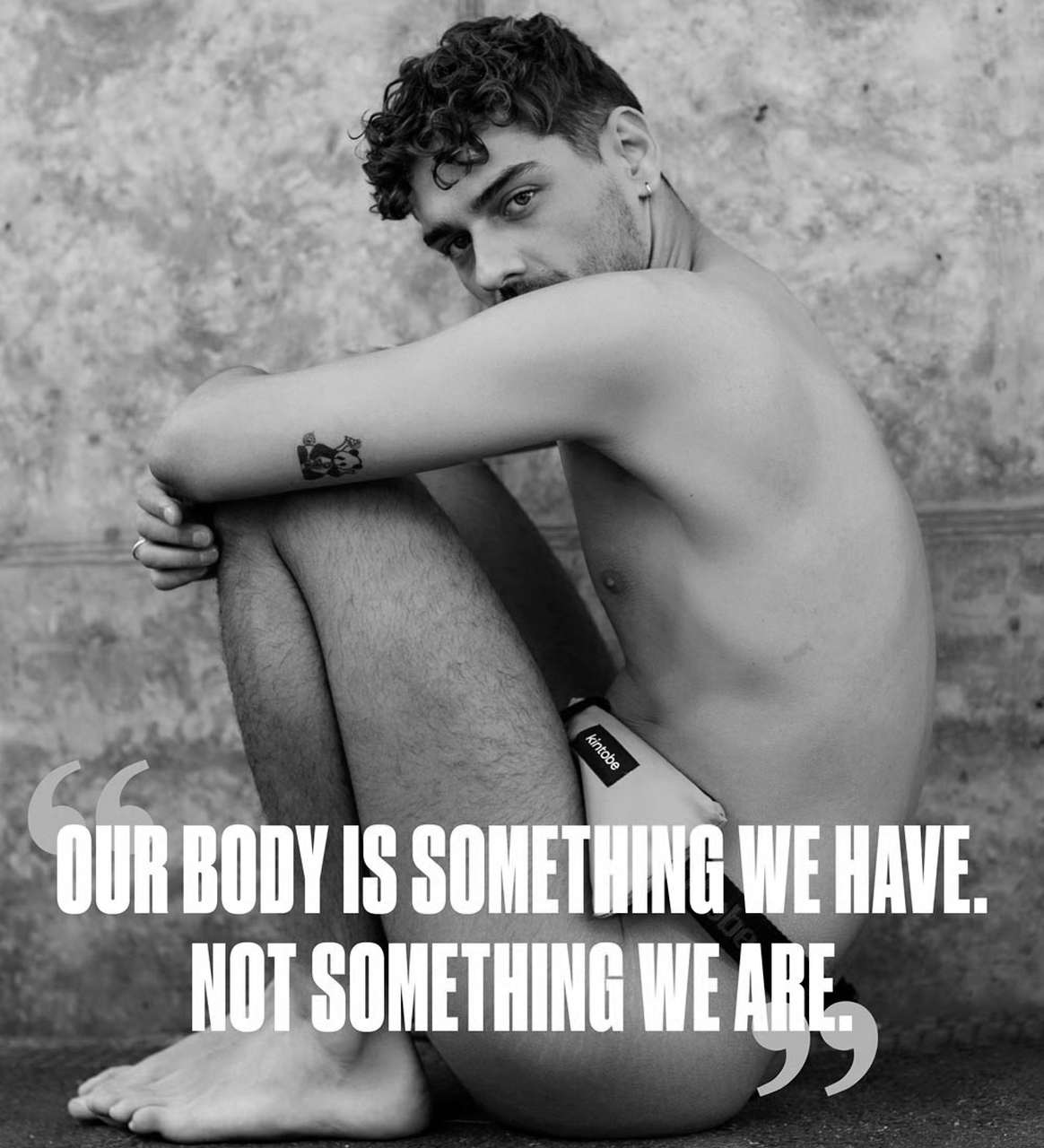My name is Marko Pocagar. I’ve created @_bodytalks on Instagram that shows different bodies and tells their story. I want to show the diversity in body, gender and sexuality and create a space where the body can be free of judgement and ideals.
How did Bodytalks start?
I was writing a book about shame and sexuality, and wanted to do an Instagram account to support the project. A friend took some photos of me naked for the project. I remember looking at a picture of my torso and suddenly I felt like I wasn’t looking at my own body. Like it had its own life. I think it had to do with the fact that I hadn’t taken the picture myself, and I didn’t have the same control of how my body was presented.
This outer view of my body made me feel a huge empathy for it. I saw it as a best friend that had treated me really well. My body is the reason I can breathe and carry myself in this world, but I rarely show it gratitude. Instead I demand more of it.
As I started exploring these thoughts I knew that the Instagram profile wasn’t going to be about the book, but about the body.
What is Bodytalks about?
Bodytalks is about letting go of evaluations and prejudices against the body and instead give room for the body’s own story.
We have a tendency to blame our bodies way too much. We take all the problems we have in life and project them onto our bodies and it’s specific traits – like our body size or shape, height, blemishes, scars, whatever. And we say, “That’s why! That’s why my life is shit”. Our bodies get all the blame for issues that have nothing to do with them.
When we for example look at stretch marks, body fat or body hair, we need to stop evaluating these traits and instead kindly ask: “What are these stretch marks expressing? What’s the story behind them? What has this body been through?”. I see the body as a canvas. And I’m interested in hearing why your canvas has the colors it has and how they came to be there. I’m not interested in judging whether the colors are nice or not.

I believe that marks on our body are a gateway to vulnerability and authenticity. They are a testimony of lived life. They are meant to remind us of what lessons we’ve learned throughout life, they’re not meant to be judged.
And Bodytalks is about ending our over-identification with the body. Our body is something we have. Not something we are. If you base your identity on your physical appearance it becomes a very fragile identity, because our bodies are organic and changeable things. The same is beauty standards.

Have you been unkind to your own body?
I’ve been fixated with flaws about myself. When I was 18-19 years old, I felt way too tall. It was a real complex. I drew a line on the wall and every morning and measured myself to see if I’d gotten taller. I felt like a monster. I couldn’t love myself. It got so bad that I went to a plastic surgeon and asked for a surgery to make me shorter. I was completely incapable of letting my body be something that worked with me and not against me.
It took time to get over it. It slowly went away as I moved away from home. As my perspective broadened. And I got busy living my life.
What have you learned from hearing other people’s body stories?
I’ve learned that we’re generally very hard on our own body. We constrain it, we don’t give it room to have its own life. We hold it down and try to manipulate it. We constantly want to change it. I’ve also learned that if we learn to let go of this constant judgement and act more friendly towards our bodies, it becomes a lot easier to exist.
How does a body live its best life?
The body lives its best life when it’s not controlled, manipulated and evaluated. When it doesn’t have to be scolded and listen to all the things it can’t do or needs to live up to.
How can we be better at treating our own and other bodies kindly?
- Have focus on the wisdom that the body carries and be less fixated on evaluating it. Let thoughts like “I feel fat today” or “I look ugly today” pass. Don’t hang on to them.
- Give other people a chance to show who they are or want to be. Don’t judge physical appearance. We have a tendency to tell half the story of a person based on how they look.
- Actively try and break taboos about body, sexuality and gender by sharing your own body story and talking to people about what has been difficult for you. Without openness shame lives. But as soon as we see others like us, and when we inspire each other with stories about the body and life lived, it goes away.
- Say hello to your body every day. Just sit and be alone with it quietly and create a moment where nothing else is disturbing the relationship with you and your body.
- Touch yourself with kindness every day.
What does carry kindness mean to you?
Keeping an open attitude when meeting other people. Putting prejudice aside and giving people a chance to make an impression based on their actions and not their physical appearance.
Instagram: bodytalks

